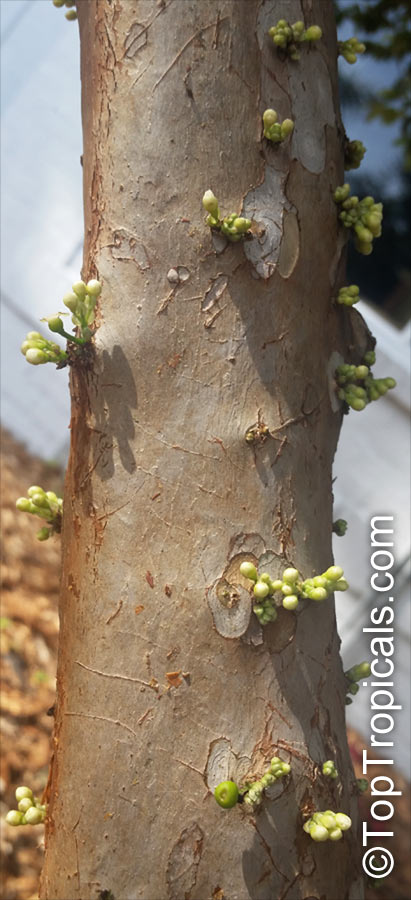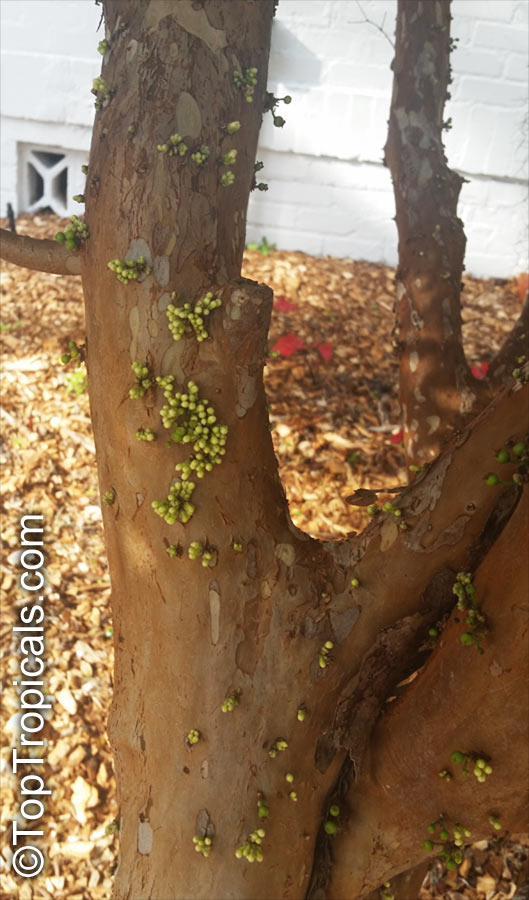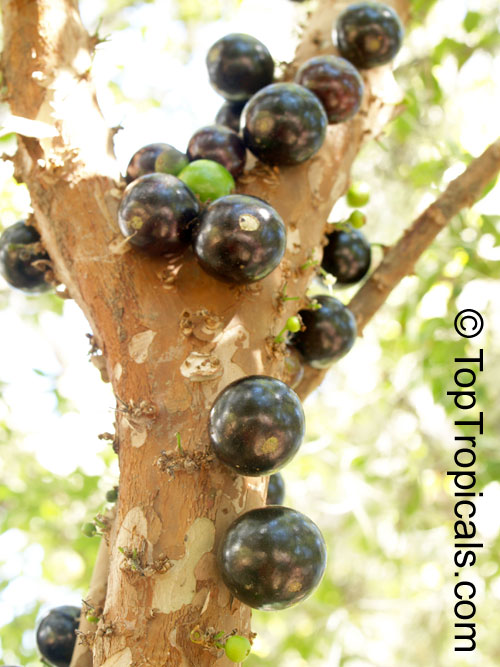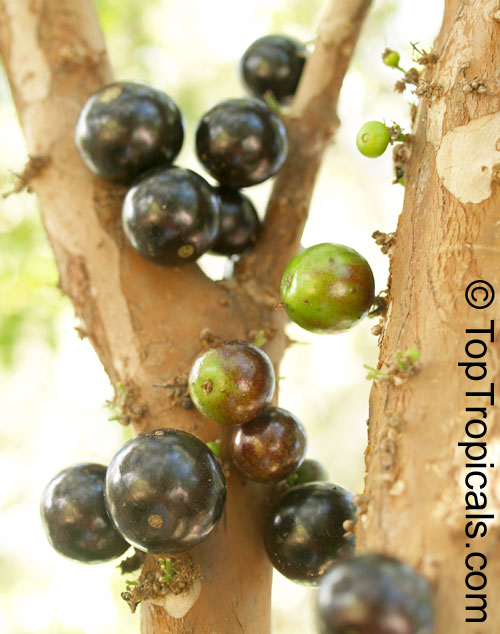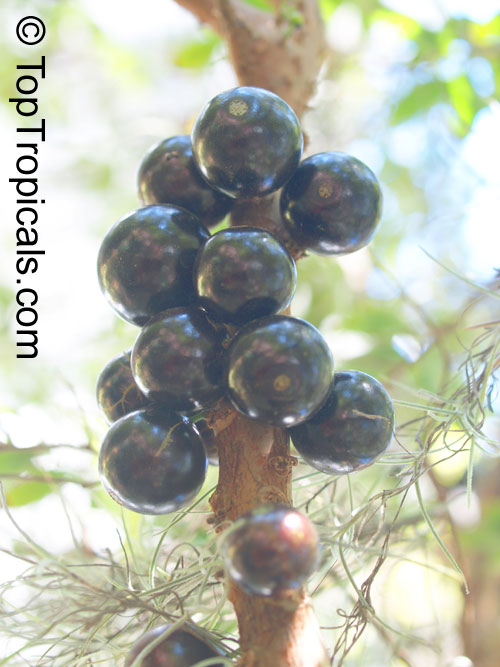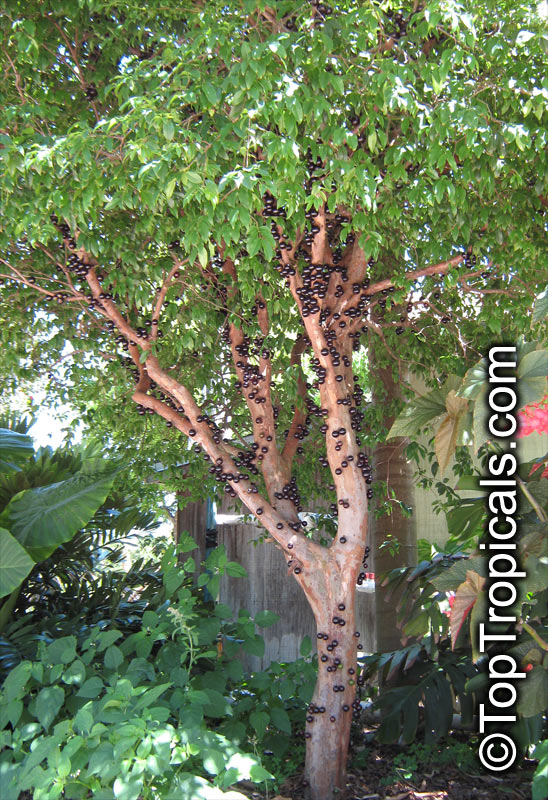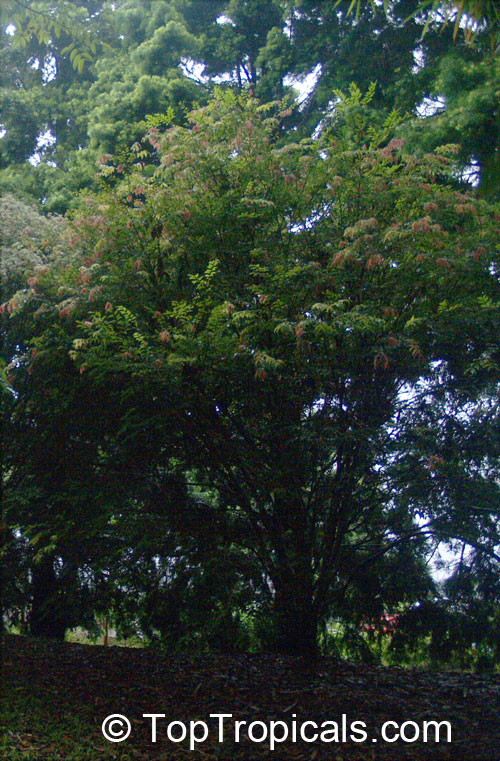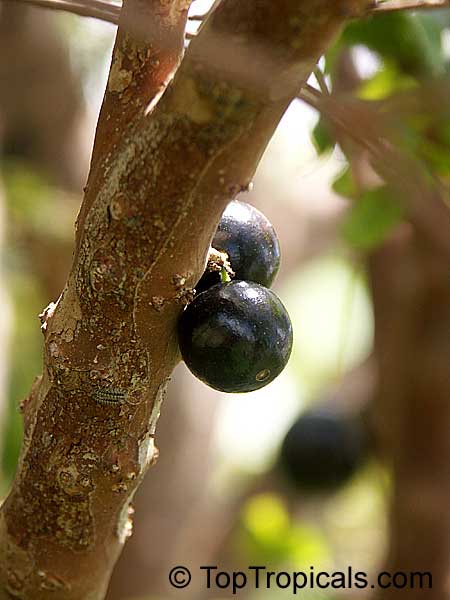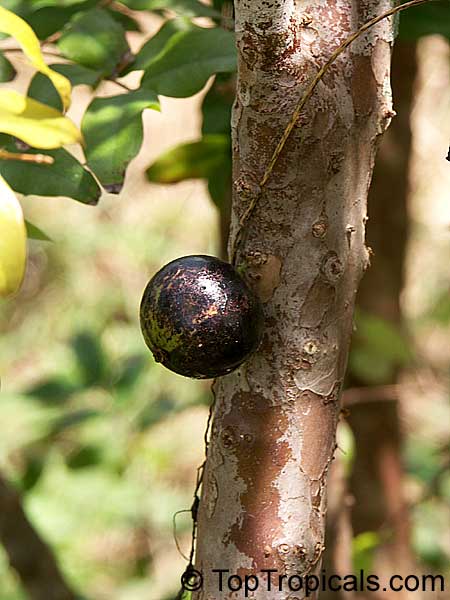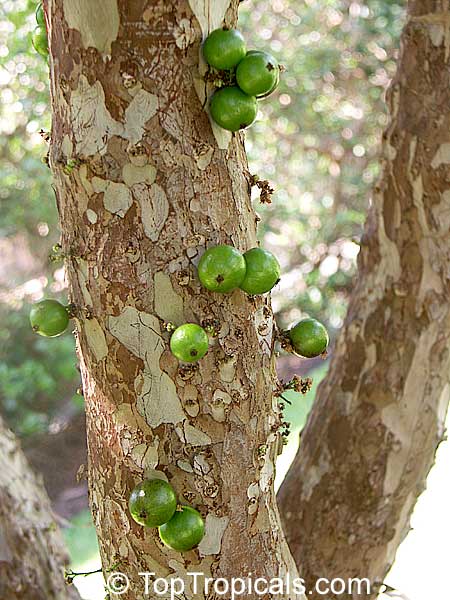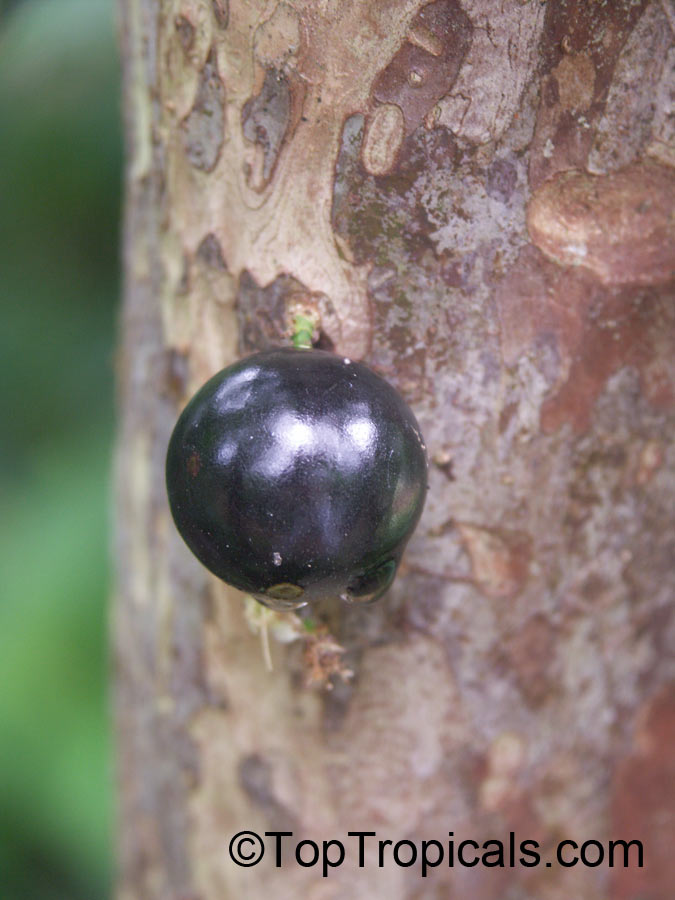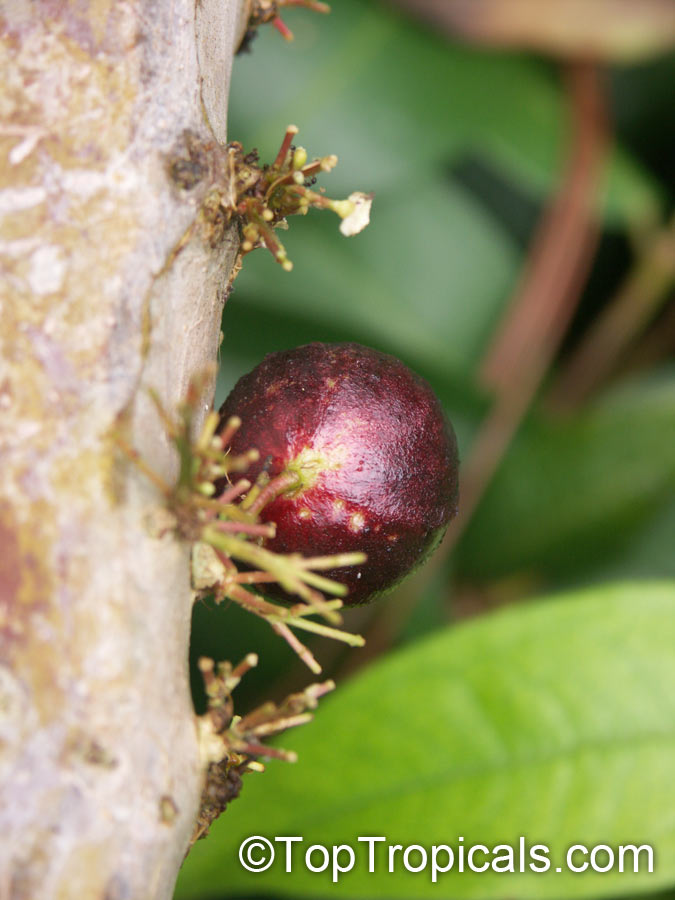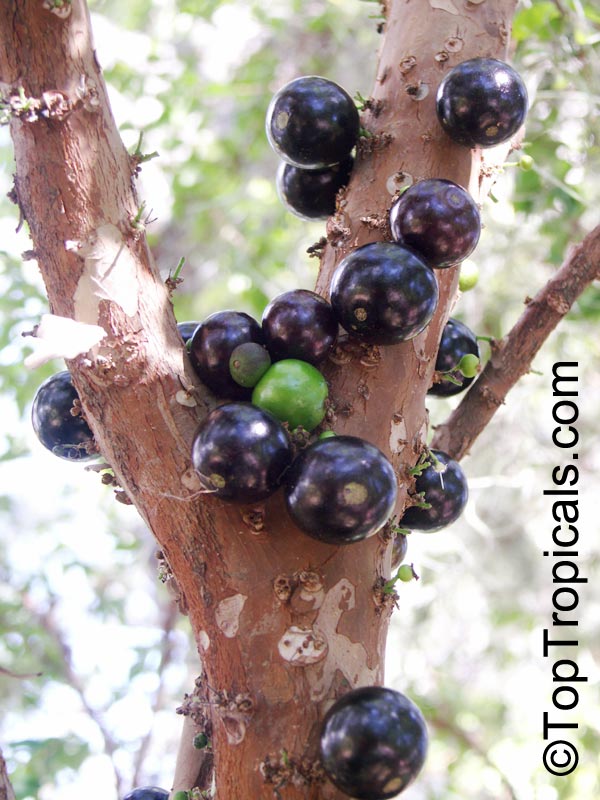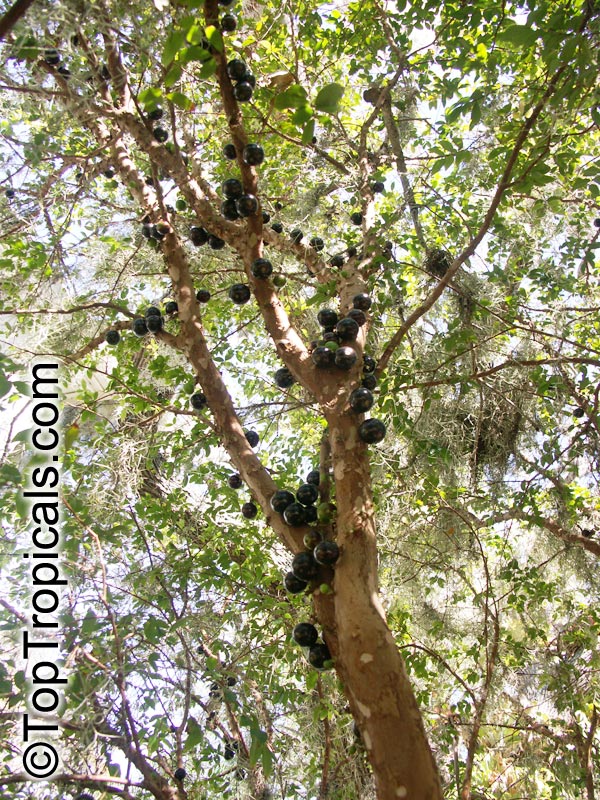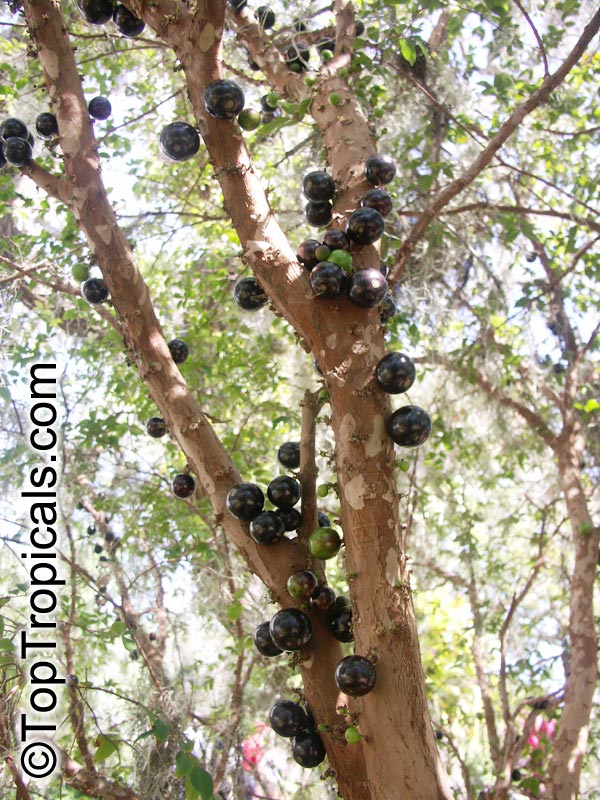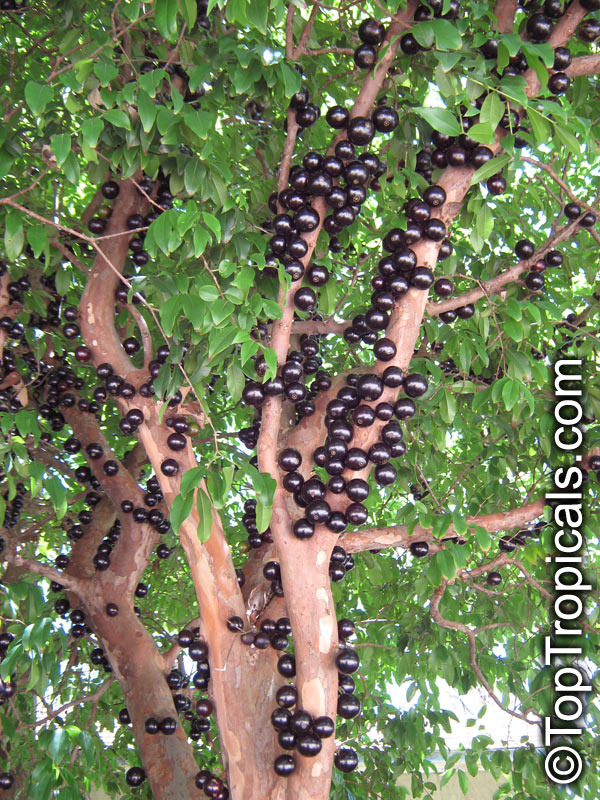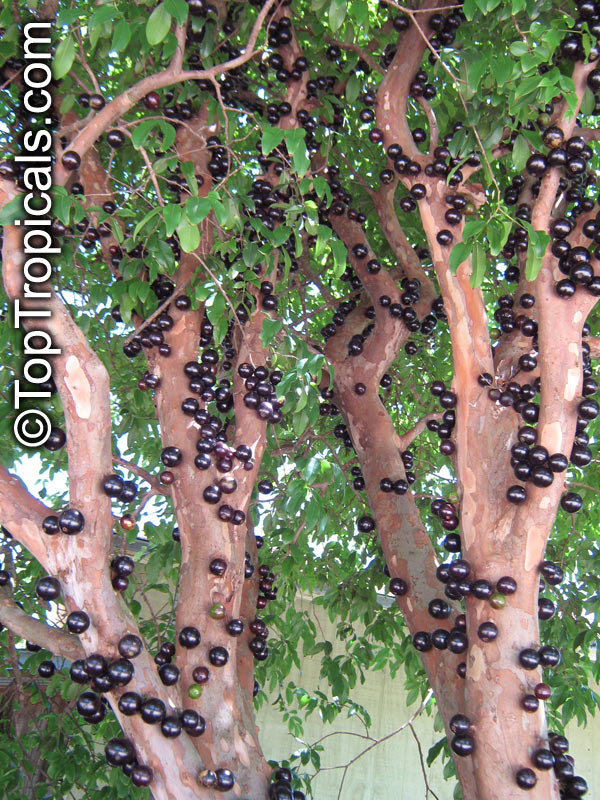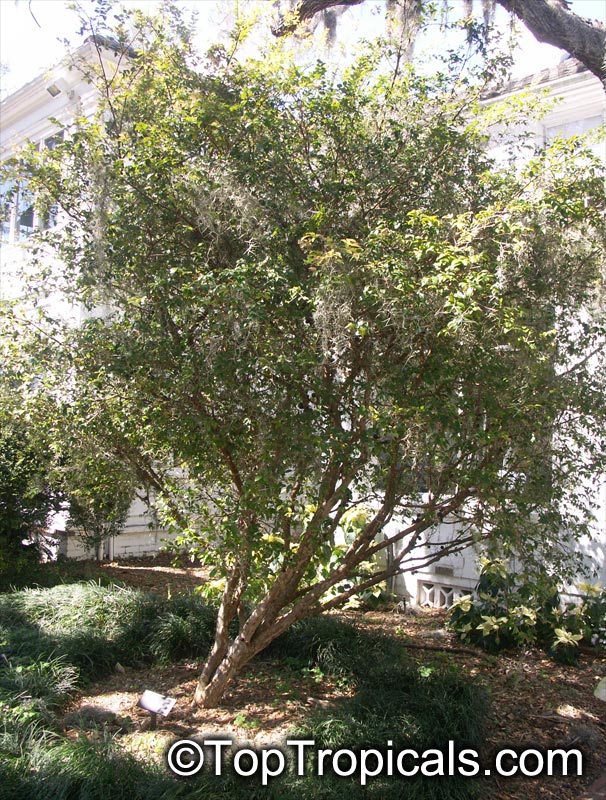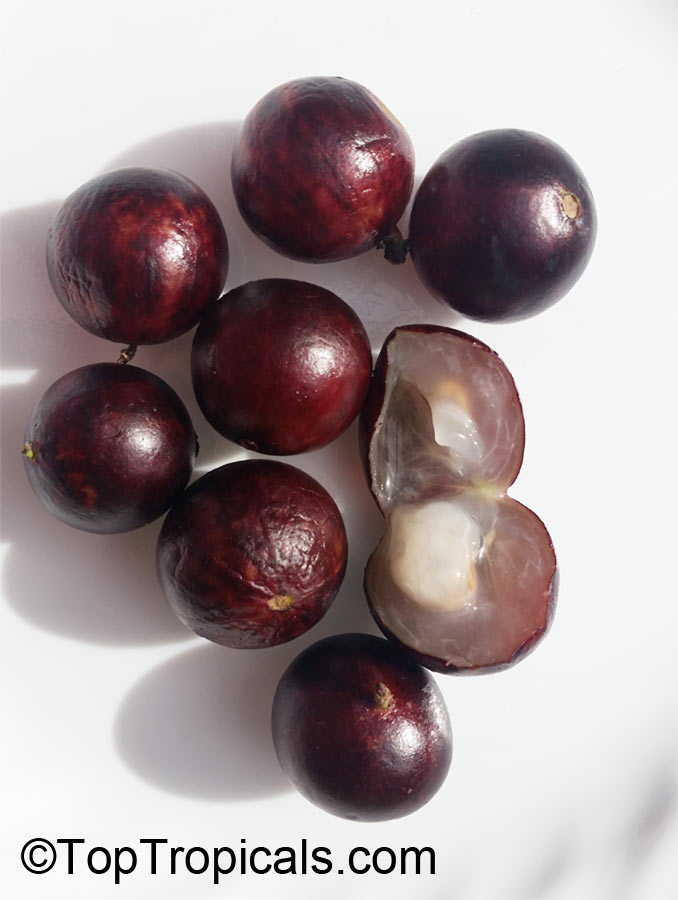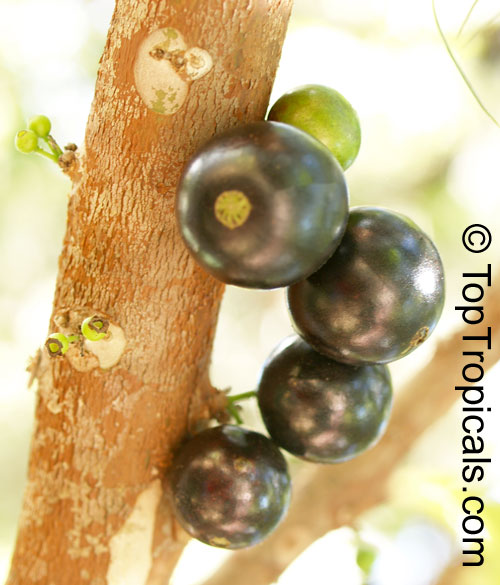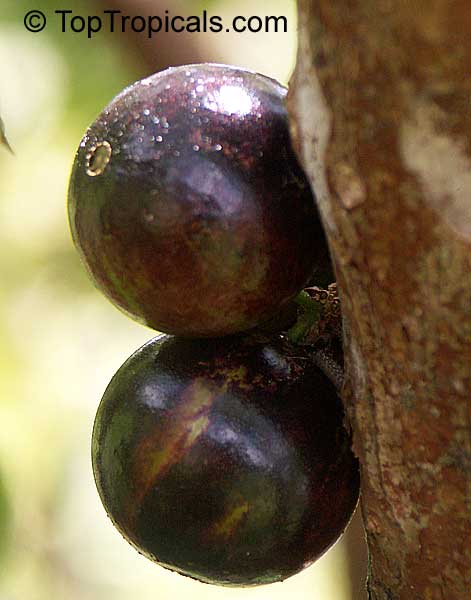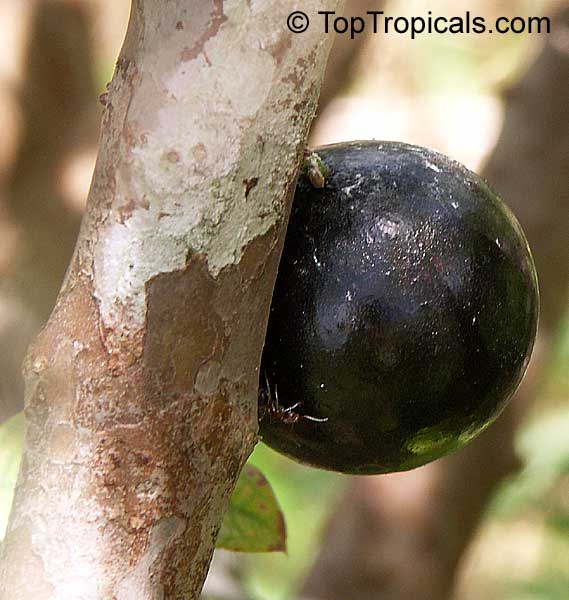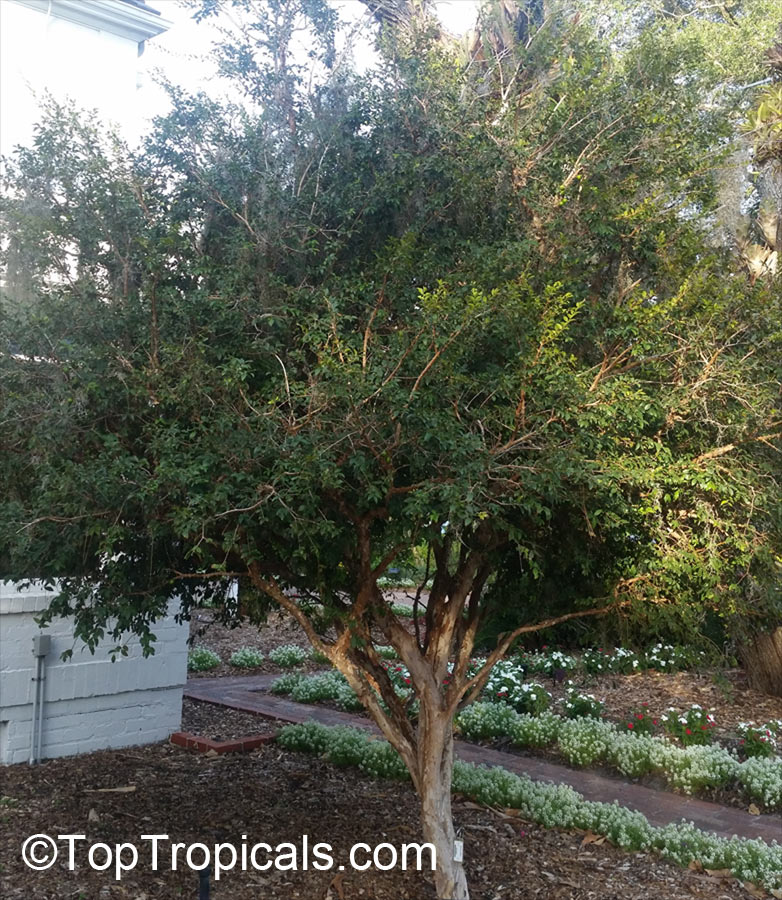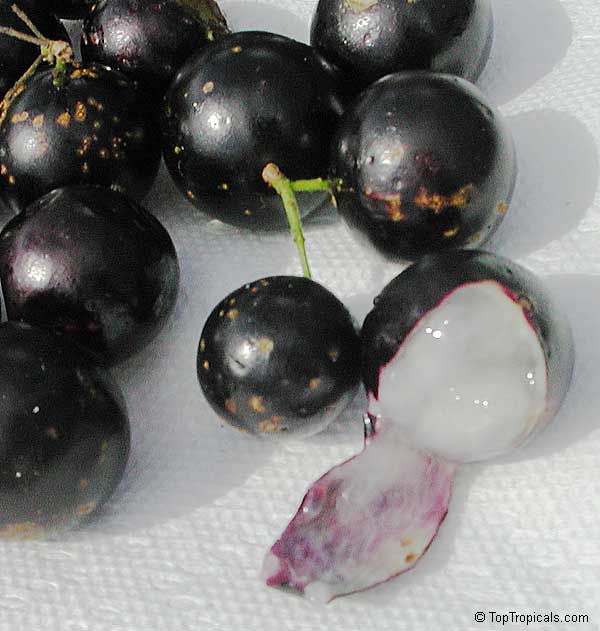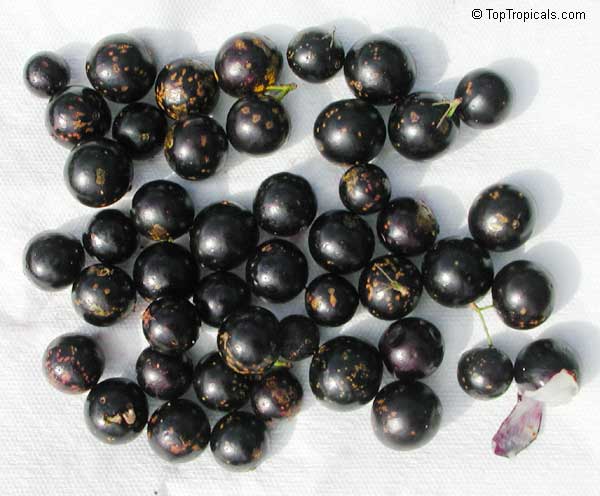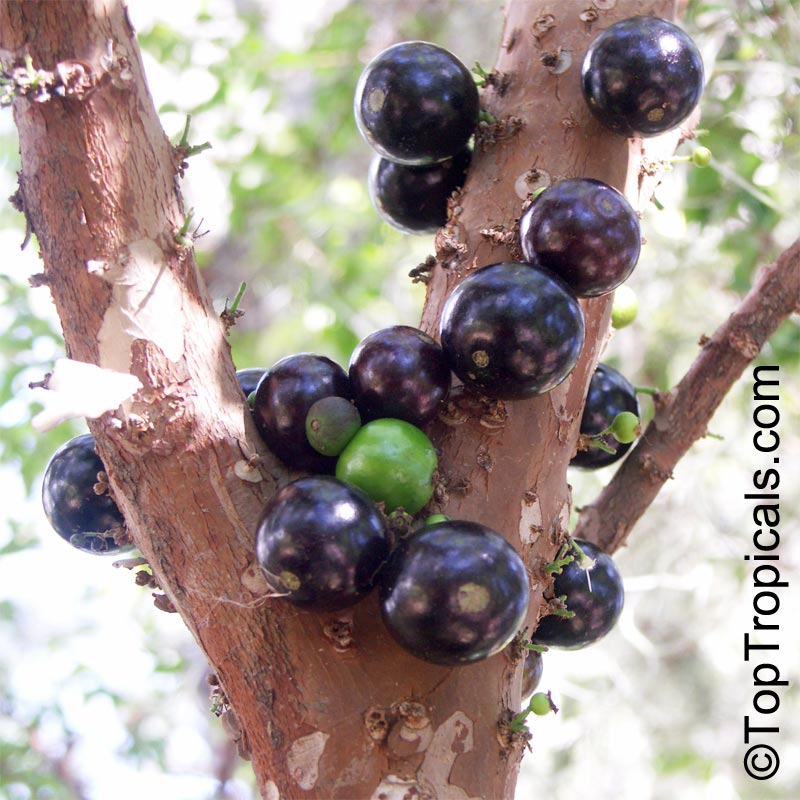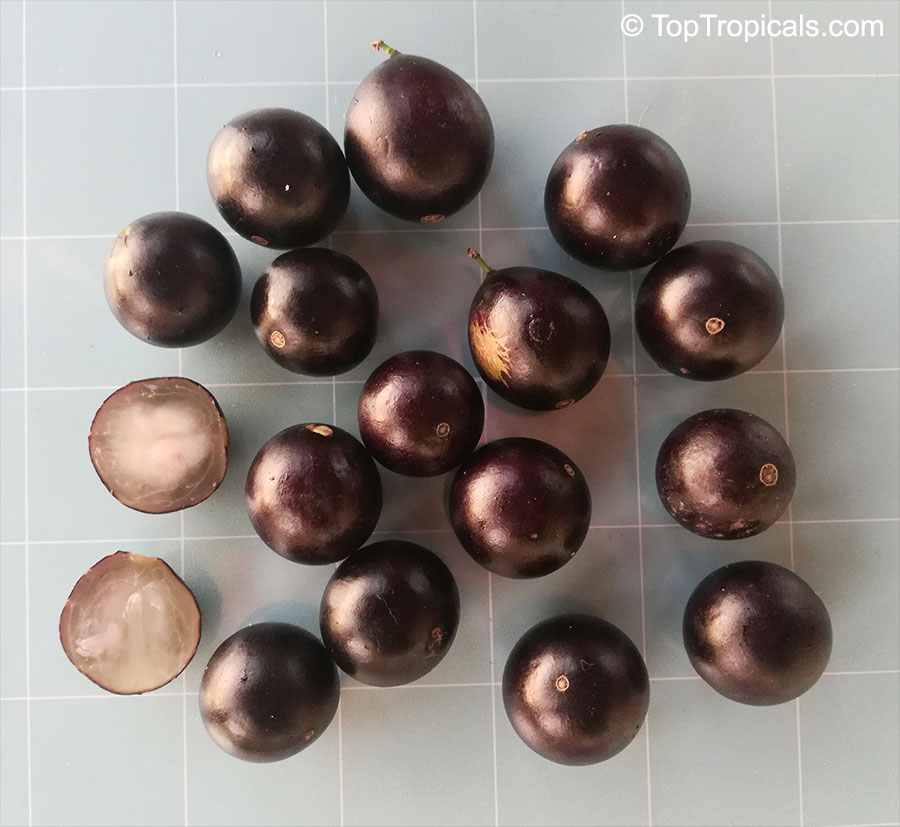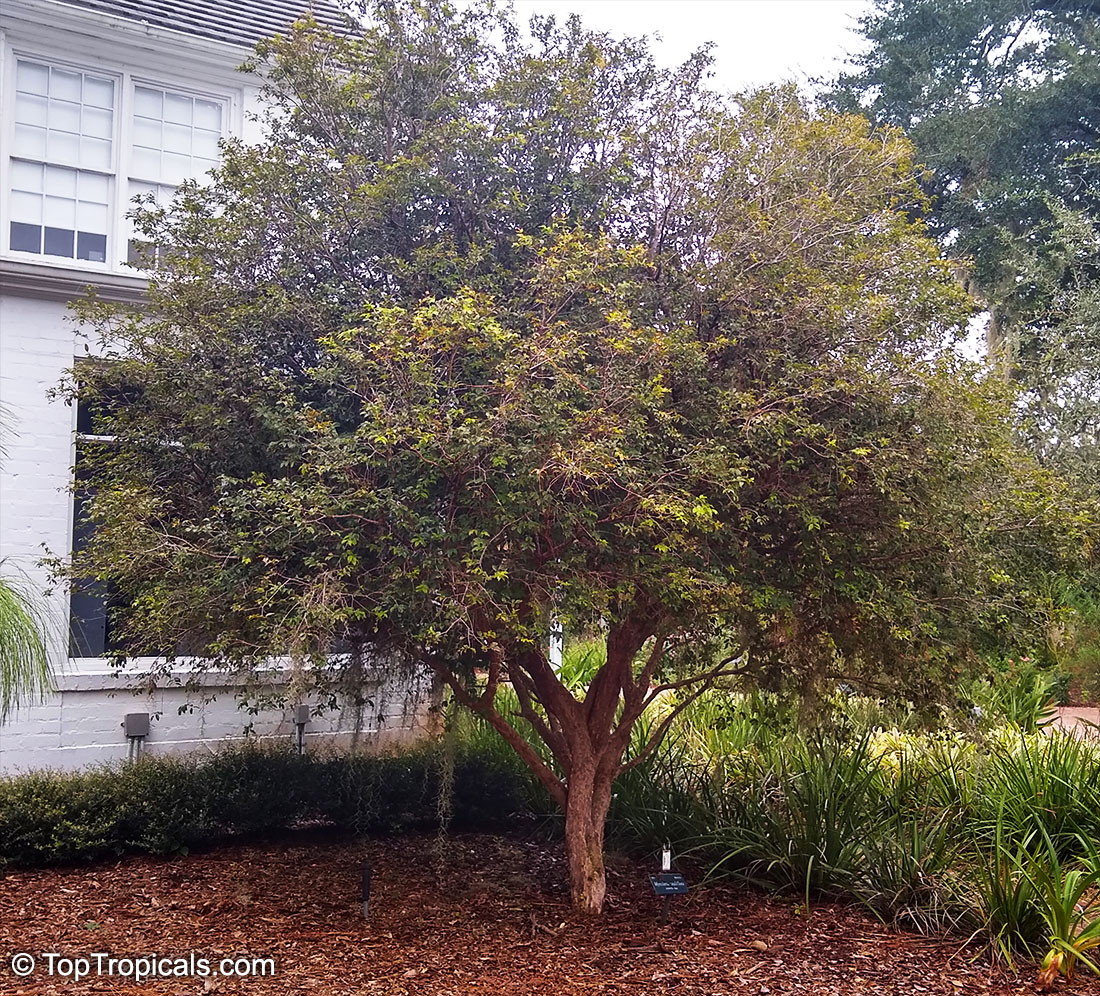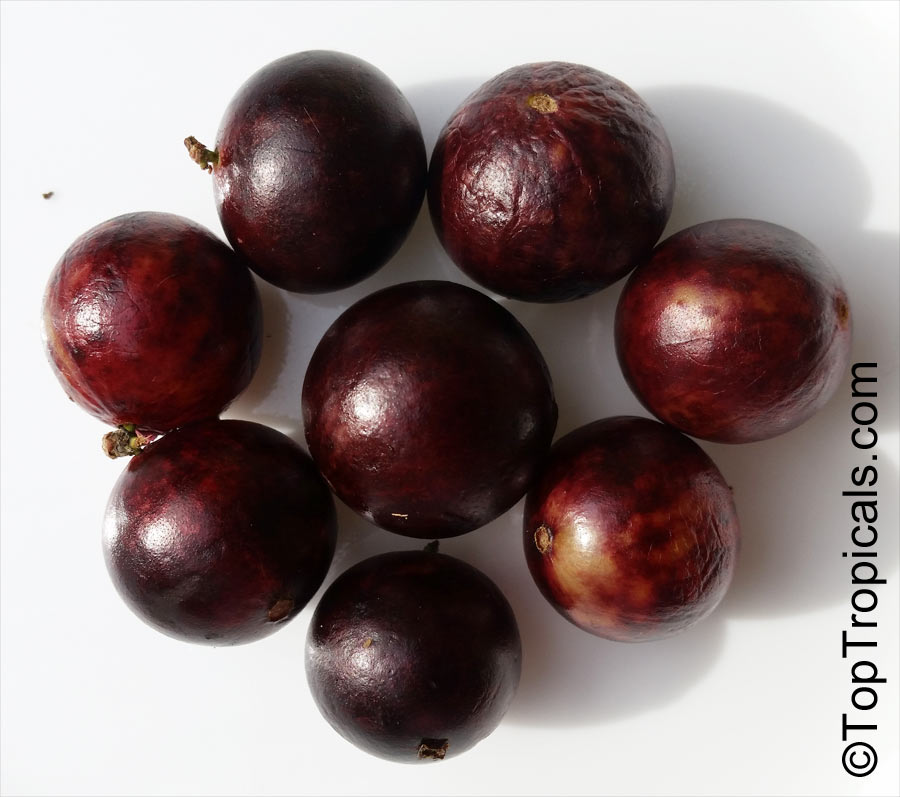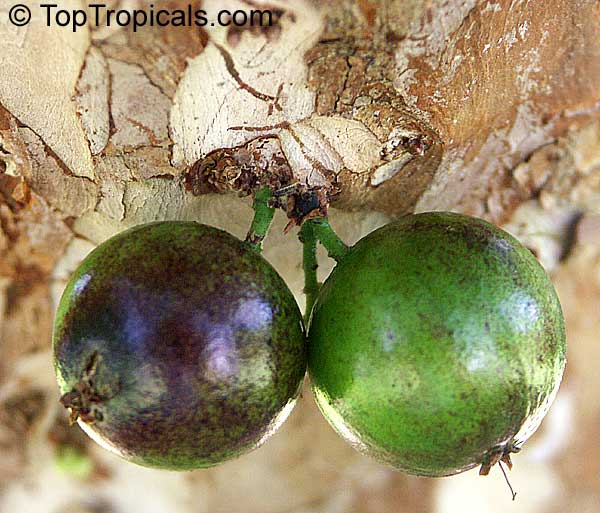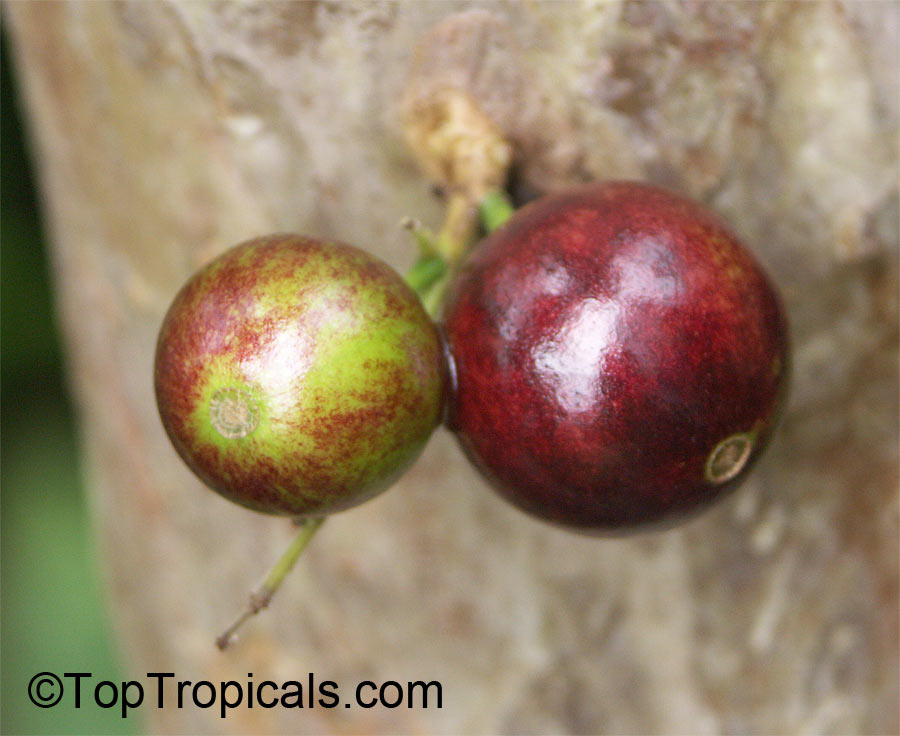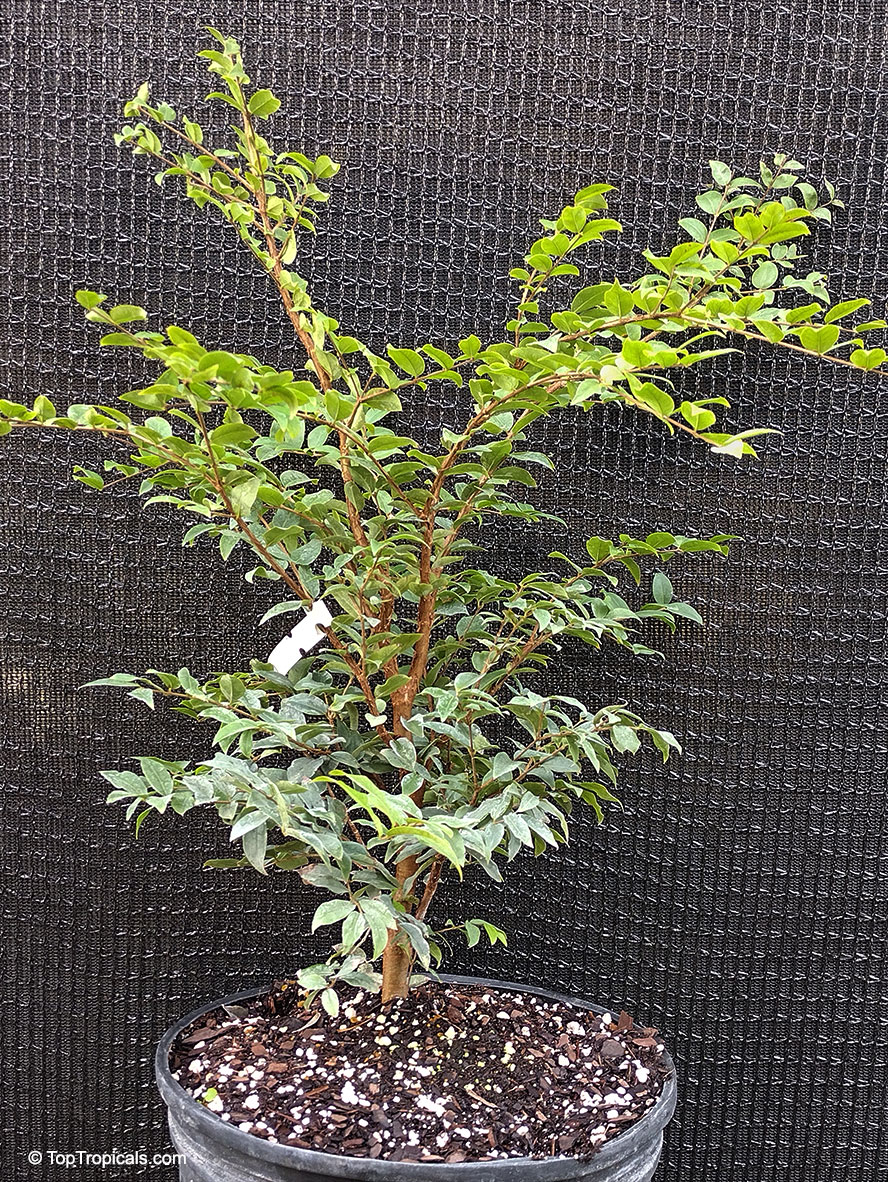Myrciaria cauliflora (Jaboticaba)
Botanical names: Myrciaria cauliflora, Plinia cauliflora, Eugenia cauliflora
Common names: Jaboticaba, Duhat
Family: Myrtaceae
Origin: Brazil
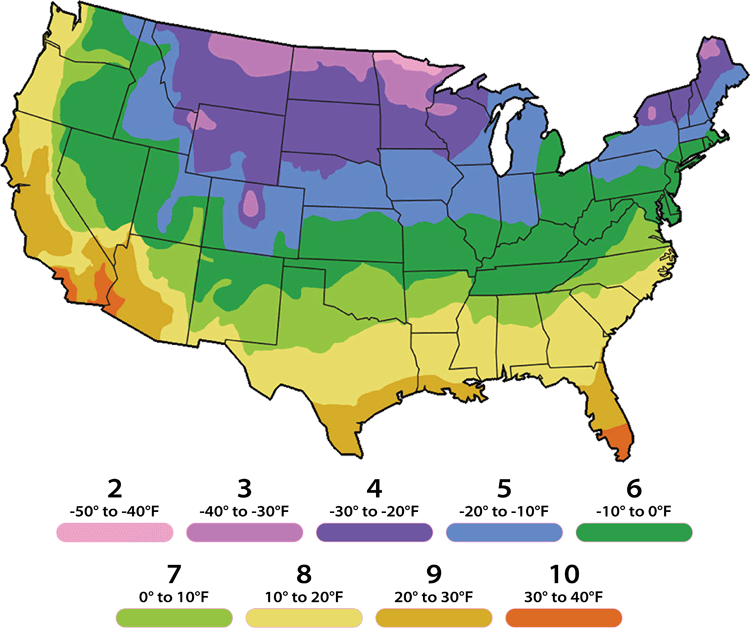








One of the most popular native fruit of Brazil. This is a slow-growing rather bushy tree up to 15 ft tall, often multi-stemmed with opposite small leaves. The larger trunks and branches have bark which peels off in small patches which is found to be very attractive. The tree is evergreen, but once or twice during the year it will shed large numbers of leaves generally corresponding to heavy rains. Small white flowers are produced along the larger trunks and branches ("cauliflora" means "flowers growing on trunk"). Fruit development is very rapid, usually taking only 20-25 days from flower to full maturity.
The fruit forms on the trunks on short stems, with 2-3 fruits sometimes in a cluster. When trees are in heavy fruit, you cannot see the branches for all the large numbers of dark purplish-black fruits that look like large grapes. They have a white pulp with several small seeds. Skin is thick, and delicious melting pulp somewhat resembles Northern Black Currant in flavor. Jaboticaba fruits are ready to harvest when they have developed a full color and are somewhat soft like a ripe grape. The fruits can be eaten fresh, used in jellies, jams, ice creams, wines or can be frozen whole to enjoy throughout the year. Usually, Jaboticaba will bear fruit only in 6 to 10 years from seed. Once mature, the trees may produce between six to eight crops of fruit per year.
Jaboticaba is fairly wind tolerant but not salt tolerant, but it is relatively cold hardy, taking down to 23 F for short periods without serious damage. Young plants may be injured at around upper 20's F. As the root system is shallow and dries out quickly, the tree requires regular irrigation. It thrives better when planted in heavily mulched organic soils. In their native area, Jaboticabas are frequently flooded by rising rivers for weeks at a time without serious damage, so they are considered water-tolerant. The plant will do best in acid soil with a pH of 5.5 to 6.5, somewhat like gardenias. In highly alkaline soil the plant often develops micronutrient deficiency.
Because of its slow growth, Jaboticaba is perfect for growing in containers. Mature trees in 3-5 gal pots can be many years old. Due to small leaves and dwarfish growth habit, Jaboticaba is often used as bonsai. The tree is small enough to fit into many parts of the garden landscape. Some old bonsai specimens can fruit.
See video about a mail ordered Jaboticaba tree.
Similar plants: Myrciaria cauliflora (Jaboticaba)
- Myrciaria glomerata (Cabelluda)
- Myrciaria floribunda (Guavaberry)
- Myrciaria vexator (False Jaboticaba)
- Plinia edulis (Cambuca)
- Blepharocalyx salicifolius (Murta)
- Eugenia brasiliensis (Grumichama)
- Eugenia confusa (Red Berry Stopper)
- Eugenia foetida (Spanish Stopper)
- Eugenia involucrata (Cherry of the Rio Grande)
- Eugenia luschnathiana (Pitomba)
Related Products: Myrciaria cauliflora (Jaboticaba)
It is more than just a fruit-bearing wonder; its a sight to behold in any landscape. Its lush foliage boasts stunning leaf patterns that add an ornamental touch to your garden. The distinctive trunk and stalks make it a captivating centerpiece, offering a unique and exotic appeal that's sure to draw attention.
Recommended Fertilizer: SUNSHINE C-Cibus - Crop Nutrition Booster
SUNSHINE-Honey - sugar booster
Recommended Fertilizer: SUNSHINE C-Cibus - Crop Nutrition Booster
SUNSHINE-Honey - sugar booster
See video about a mail ordered Jaboticaba tree.
Recommended Fertilizer: SUNSHINE C-Cibus - Crop Nutrition Booster
SUNSHINE-Honey - sugar booster
7 gal pot. More developed root system, thicker trunk and branches. Plant height depends on growing season and variety. Dwarf varieties are slow growers and may be shorter. Contact us for exact size description if size/height matters to you. 7 gal plants may be shipped separately from other items by Ground service due to large size. See here time in transit (business days, excluding Sat-Sun!)
Recommended Fertilizer: SUNSHINE C-Cibus - Crop Nutrition Booster
SUNSHINE-Honey - sugar booster
Recommended Fertilizer: SUNSHINE C-Cibus - Crop Nutrition Booster
SUNSHINE-Honey - sugar booster
See video about a mail ordered Jaboticaba tree.
Recommended Fertilizer: SUNSHINE C-Cibus - Crop Nutrition Booster
SUNSHINE-Honey - sugar booster
This item can not be shipped. Pick up only. We can provide local delivery around Ft. Myers or Sebring, Florida. Contact us for an estimate. Non-pickup orders are subject to restocking fees.

